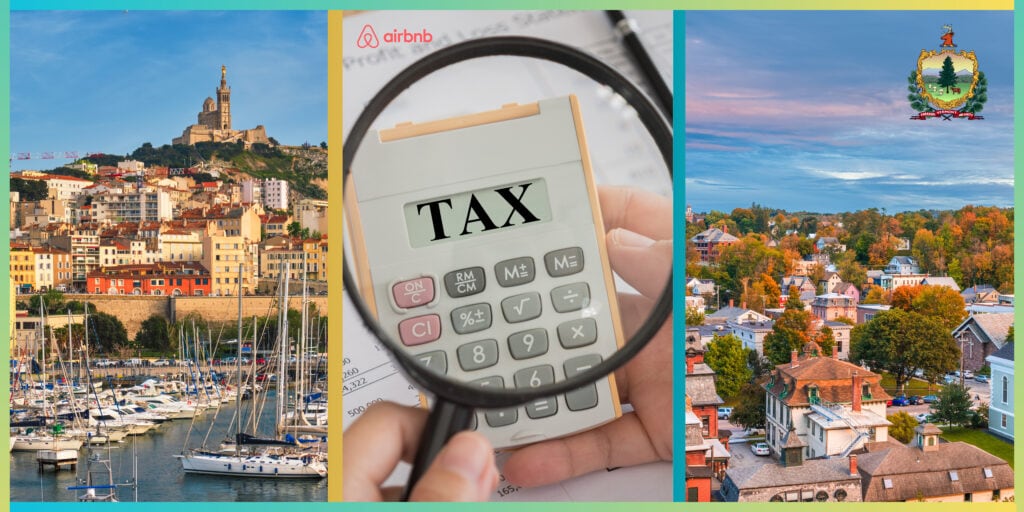Marseille hosts face new 90-day rental limit down from 120
- Marseille is cutting the short-term rental (STR) cap (maximum allowed nights) for primary residences from 120 to 90 per year.
- Mayor Benoît Payan is positioning Marseille as the strictest-regulated city in France, arguing that platforms like Airbnb contribute to the loss of housing stock for long-term residents.
- The new rules come under France’s broader Le Meur Law (Anti-Airbnb law), passed in late 2024, which allows local mayors to impose stricter controls on STRs.
- Under these new rules, property owners who exceed the 90-day limit could face fines of up to €15,000, while STR operators who fail to register their properties properly risk penalties of up to €20,000.
- The city is also planning an “Airbnb brigade” to track illegal listings and remove unauthorized key lock boxes, increasing enforcement efforts across the city.
- Airbnb opposes the new restrictions, calling them a “diversionary measure” that won’t solve the housing crisis and will hurt local families and tourism-driven businesses.
Snigdha’s Views:
- France is one of the largest STR markets and Airbnb’s second-largest, now under intense regulatory pressure, challenging operators to adapt.
- With the 90-day cap in place, property owners who previously rented for up to 120 nights a year will need to adapt their strategy, whether by maximizing occupancy on available nights, adjusting pricing, or exploring alternative rental models.
- For property managers, fewer legal rental nights mean increased competition for properties that remain within legal limits.
- The introduction of an Airbnb brigade and tougher compliance measures means property managers will have to be diligent about permits, tax reporting, and adherence to city quotas.
- Shifting toward mid-term rentals by targeting corporate housing, digital nomads, and extended-stay travelers could be a solution.
- Marseille’s stricter rental rules could soon extend to the Alpes-Maritimes, where the 120-day cap still applies. Le Meur’s bill grants local mayors the power to enforce tighter restrictions, making it likely that other cities will follow suit.
Airbnb to Collect and Remit Tourist Taxes Across Italy Starting February 15, 2025
- Airbnb has recently announced that it will begin collecting and remitting tourist taxes across Italy, starting with over 1,200 towns and cities as of February 15, 2024.
- The Italian 2024 Budget Law mandates that platforms like Airbnb must collect and remit tourist taxes, which vary by location. For instance, in Venice, the tax ranges from €1 to €5 per night, while in Rome, it is between €3 and €7 per night.
- It aims to help local authorities receive the taxes & eliminate the need for guests to worry about additional tax bills and paperwork.
- Authorities have long complained that many short-term rental operators either underreport or fail to pay tourist taxes entirely. By shifting tax collection to Airbnb and other platforms, Italy ensures compliance, prevents tax evasion, and secures a steady revenue stream from STRs.
Snigdha’s Views:
- There is an interesting contrast between Italy and New Orleans, where Airbnb is suing the city over stricter platform accountability rules, showing that Airbnb is willing to cooperate in markets where regulations are firmly in place and enforcement is unavoidable.
- For operators, on the positive side, automated tax collection eases the administrative burden, letting hosts focus on their business while Airbnb handles tax remittance.
- However, the new national STR registration system increases oversight, giving cities clearer data on rental numbers, ownership, and frequency.
- Airbnb will automatically apply the tourist tax for eligible stays based on the local rate where the listing is located. This means that guests will see a separate line item for the tourist tax.
- The collected amount will then be remitted directly to local authorities on a routine basis, hosts no longer need to collect and submit these payments manually.
- This automation applies only to municipalities in Airbnb’s tax system. Hosts can check under “Taxes” in their Airbnb account to confirm coverage.
- However, many professional managers already handle tourist tax collection internally. With Airbnb taking over, this could complicate existing accounting and reconciliation processes.
Vermont’s New Bill Could Wipe Out Most Vacation Rentals
- A new bill, H.242, has been proposed in Vermont that could ban most vacation rentals in the state as it requires hosts to live on-site and limit each person to one rental per parcel (a legally defined piece of land or property).
- The bill also includes a statewide STR registration system that would require all vacation rental operators to submit detailed property and ownership information to the Department of Housing and Community Development.
- Local municipalities would have the option to override the host-occupancy and numerical restrictions, but only if residents vote to do so through a formal ballot process.
Snigdha’s Views:
- If passed, H.242 would make it difficult for property owners to legally operate vacation rentals in Vermont.
- STR owners who do not live on-site would be forced to either sell, convert to long-term rentals, or stop renting altogether.
- New investment in Vermont’s vacation rental market would likely shrink, as the law would discourage non-owner STRs.
- Monique DeLorenzo Pomeroy, a Vermont short-term rental owner & operator, says Vermont lawmakers push this bill yearly, facing backlash from property owners and businesses. She urges the state to legalize STRs at the state level rather than proposing repeated bans.
- Vermont Short-Term Rental Alliance is also rallying against H.242, urging property owners to oppose the bill and push for fair regulations.
- In a recent LinkedIn post, they called on the STR community to contact lawmakers, emphasizing their united stand against the proposed restrictions.







